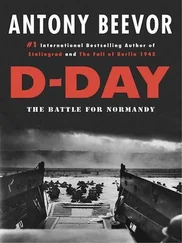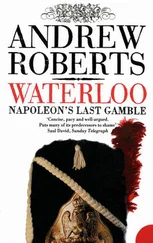Other similar last-minute arrangements saved the day in various parts of the battlefield. When Wellington sent his Acting Quartermaster-General, Major Dawson Kelly, to discover what was the meaning of the confusion he had spotted in the 30th Regiment and the 2nd Battalion of the 73rd, which had been in square formation for the greater part of the day, he received the answer that all the officers had been killed or wounded, and that Kelly would take up the command as the last French attack came up. It was repelled.
Ensign Gronow recorded how it felt to have fought throughout the afternoon, only to find that the Old Guard were being mustered for the attack:
I am to this day astonished that any of us remained alive. From eleven o’clock till seven we were pounded with shot and shell at long and short range, were incessantly potted by tirailleurs [snipers] who kept up a most biting fire, constantly charged by immense masses of cavalry who seemed determined to go in and win, preceded as their visits were by a terrific fire of artillery; and, last of all, we were attacked by la Vieille Garde itself. 7
The Prussians were meanwhile in the process of staving in Napoleon’s right flank, even subjecting his possible future line of retreat down the Charleroi road to intense bombardment. With enemy troops at such close proximity, it is hardly surprising that the Emperor considered it of primary importance for his forces to recapture Plancenoit, a village that consequently saw as much bitter and almost equally prolonged fighting as the two more famous farmhouses of the battle, Hougoumont and La Haye Sainte.
Lieutenant-Colonel Baron Golzio was ordered to retake Plancenoit with two battalions of the 2nd Grenadier Regiment of the Old Guard, about 1,100 men, not using musketfire but only the cold steel of the bayonet. They were supported by chasseurs. Sure enough, in less than half an hour the village was cleared of fourteen battalions of Prussians, who were forced to retreat 600 yards from the village. The great obelisk to the 3,000 Prussians who died in that frenzied defence is a particularly impressive one, even on a battlefield replete with fine memorials.
While the Young Guard returned to occupy Plancenoit, the grenadiers of the Old Guard ill-advisedly pressed home their attack beyond it, even succeeding in capturing some of von Bülow’s guns up a slope outside the village, but once the Prussian commander had spotted that he only faced a small detachment of the Old Guard rather than its entire strength his counterattack drove the grenadiers back into the village, which they and the Young Guard prepared to defend to the end. They had, nonetheless, bought their Emperor the one thing he needed — and the one thing that he repeatedly stated should never be lost in warfare — time.
Napoleon, having in effect won the fourth phase of battle by taking La Haye Sainte, pulverising the Anglo-Allied centre and throwing von Bülow out of Plancenoit, was now able to concentrate on trying once again to break Wellington’s line. The Guard had rallied and General Lobau’s VI Corps was now ready to re-engage. Five thousand men of the Guard were meanwhile fresh and ready for action. The fifth and final phase of the battle was about to begin.
5
The Fifth Phase
NAPOLEON DID NOT have much time in which to unleash the Imperial Guard onto the Anglo-Allied line, as von Zieten’s column had already reached the hamlet of Smohain, thereby allowing Wellington to bring troops in from his left flank to protect his centre. Although the Prussians’ advance on Napoleon’s eastern flank might have been arrested, the same was not true of their forces debouching onto the battlefield further north, where they were connecting with their Anglo-Allied comrades-in-arms. The jaws of the Anglo-Prussian trap were springing shut with every new man of Blücher’s army who arrived on the battlefield.
Another commander than Napoleon might have kept his eleven grenadier and chasseur battalions of the Old and Middle Guard back, in order to protect what he must have realised would be a forced retreat as the Prussians emerged onto the field en masse, but not the Emperor for whom the last two decades had been a series of gambler’s lucky dice throws. The 5,000 -man-strong scale of the Imperial Guard’s attack would be enough, he hoped, to crack Wellington’s line, which he believed must be starved of reserves by then. All he needed was to be able to exploit a crack in the line anywhere along it, and the units that had provided the coup de grâce so often in the past might be able to do so once again.
In preparation for his last-ditch assault Napoleon desperately needed to put heart into his troops, so he ordered his aide de camp General de la Bédoyère and other officers of his general staff to proclaim the news that Marshal de Grouchy had suddenly appeared in force on Wellington’s left. According to Marshal Ney’s report of the battle given to the Parisian authorities on 26 June, ‘Riding along the lines, the General Officer spread this intelligence among the soldiers, whose courage and devotion remained unshaken, and they gave new proofs of them at that moment in spite of the fatigue which they experienced.’ Thus heartened (if utterly mendaciously) by Napoleon, the Imperial Guard infantry marched up the slope to the east of Hougoumont to press home what they hoped would be their decisive attack. ‘Audacity, further audacity, always audacity’ had long been Napoleon’s watchword, and it had often seen him through situations as desperate as this one.
Nor was all the news bad for the Emperor, for, as the historian Captain Becke records:
The smoke-wreaths and puffs indicated the position with sufficient clearness. On the right, Napoleon saw Durutte in possession of Papelotte, and gradually working his way up the slope; and if the division were only strong enough to press further forward, then it would outflank the Anglo-Dutch left, and be in a position to swing down the reverse slope of the Mont St Jean plateau; whilst in the centre the remainder of d’Erlon’s gallant corps crowned the ridge, beyond La Haye Sainte which was theirs at last … In his brief survey of the historic scene Napoleon must have noticed that, in the valley away to his left, the remnants of his shattered cavalry as well as a part of Reille’s Corps were rallying; and far away to the left the strife around the blazing ruins of Hougoumont still raged as furiously as ever. Wellington’s grip on his position was plainly relaxing, whereas the Emperor still held under his hand, the Guard — the Invincibles — whose steadiness, courage and devotion in the past had always proved sufficient to wrest victory from a doubtful battle. 1
Those historians who present the attack of the Imperial Guard as an utterly forlorn hope are therefore writing with far too much hindsight; there had been some French successes on the battlefield up to the point, at around 7 p.m., that Napoleon committed his crack units to the struggle. It is nonetheless true that if Napoleon had flung the Guard into the mêlée the moment Ney had begged for reinforcements, they would doubtless have been able to achieve much more.
To illustrate how ‘close run’a battle Waterloo was, one only has to consider how near the Prussian 1st Corps came to doubling back just as it appeared on Wellington’s left flank. For General von Zieten’s advance guard had suddenly halted, turned around and returned, it transpired, upon the intelligence report of a young and inexperienced staff officer who had misinterpreted wounded men moving to the rear of the Anglo-Allied line as fleeing fugitives. Blücher had ordered Zieten to close up the 1st Corps with the main body of the Prussian army, and if it had not been for the prompt action of General von Müffling, who reassured Zieten that the Anglo-Allied line was holding and that von Bülow did not need help, then Müffling’s words — ‘The battle is lost if the First Corps does not go to the Duke’s rescue’— might have come hideously true. Fortunately, Zieten’s mind was not as prosaic as de Grouchy’s had been, and the 1st Corps engaged, despite the failing light.
Читать дальше
Конец ознакомительного отрывка
Купить книгу











